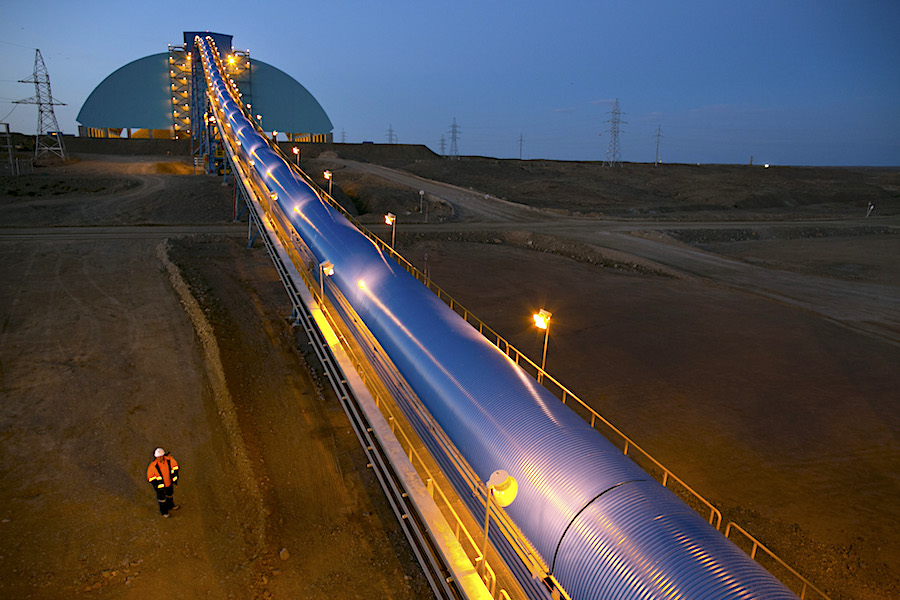
Rio Tinto Plc and the Mongolian government said on Tuesday they have reached an agreement to end a long-running dispute over the $6.93 billion expansion project for the Oyu Tolgoi copper-gold mining project.
The deal marks a positive development for the Anglo-Australian mining giant, which is reeling from Serbia’s rejection last week of its proposed lithium mine as well as local opposition to projects in Guinea, the United States and elsewhere.
“It’s a major relief. It’s a huge step forward for us,” Rio Chief Executive Jakob Stausholm told Reuters via phone from Ulaanbaatar ahead of a flight to the mine site for a ribbon-cutting ceremony later on Tuesday with Prime Minister Oyun-Erdene Luvsannamsrai.
“We are very comfortable with this outcome and, more than anything, achieving a full reset of the relationship,” said Stausholm, who became CEO last year.
Stausholm visited Mongolia multiple times in recent months in an attempt to salvage the project amid mounting concerns that the economic benefits of the project for Mongolians were being eroded.
Mongolia owns 34% of Oyu Tolgoi, one of the world’s largest-known copper and gold deposits. Rio controls the rest through its 51% stake in Toronto-listed Turquoise Hill Resources Ltd and operates the mine.
As part of the deal, Turquoise Hill will waive $2.4 billion in debt owed to it by the Mongolian government. Additionally, operations will soon start on the underground portion of Oyu Tolgoi, with first production expected in the first half of 2023.
The expansion will be paid for with cash, the rescheduling of existing debt repayments, and prepaid sales of copper concentrate to Turquoise Hill.
The project also committed to buying electricity from the Mongolian grid once it is able to meet supply. Rio said it will work to help add renewable power to the grid. In the meantime, the government extended an agreement to import power from China through 2023.
Rio’s original 2009 agreement on the mining project called for the construction of a new coal-fired power plant to supply electricity. The updated deal does not include that plant and instead Rio aims to source wind power, the company said.
Stausholm said the deal’s multiple terms reflect “an elegant solution” to the complex issues that had strained relations with the government. “It is possible to do something for the benefit of the people of Mongolia and also for the benefit of our investors,” he said.
Luvsannamsrai, Mongolia’s prime minister, said the deal “demonstrates to the world that Mongolia can work together with investors in a sustainable manner and become a trusted partner.”
(By Ernest Scheyder and Praveen Menon; Editing by Lisa Shumaker)
Comments